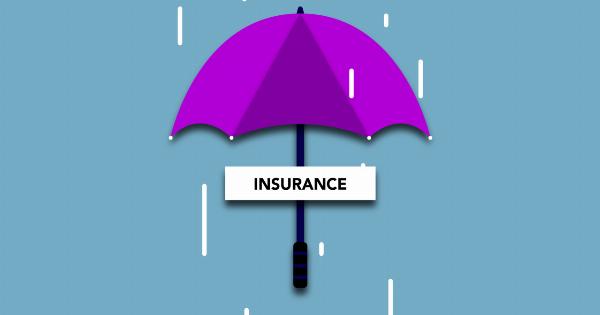Insurance is an important aspect of our lives that provides necessary financial protection against unexpected events and emergencies.
While many people are aware of the basic coverage that their insurance policies offer, they might not be fully aware of the numerous free benefits and special coverage options that may be available to them. In this article, we will discuss some of the important things you need to know about your insurance, including the additional benefits and special coverage that could greatly enhance your policy.
The Importance of Understanding Your Insurance Policy
Before we delve into the specific free benefits and special coverage options, it is crucial to emphasize the importance of understanding your insurance policy.
Insurance policies can be lengthy and complex, filled with technical terminology that might be difficult to comprehend. However, taking the time to read and understand your insurance policy can help you make informed decisions, maximize the benefits of your coverage, and take advantage of any additional perks available to you.
Common Free Benefits Included in Insurance Policies
Many insurance policies come with a range of free benefits that are often overlooked. These benefits are typically included in your premium and can provide significant value.
Some common free benefits that you might find in your insurance policies include:.
1. Roadside Assistance
If you have car insurance, it is worth checking if roadside assistance is included in your policy. Roadside assistance provides emergency aid if your vehicle breaks down, runs out of gas, or if you lock yourself out of your car.
This service can be incredibly useful and save you from distressing situations on the road.
2. Home Emergency Coverage
Home insurance policies often come with home emergency coverage, which can be incredibly helpful in unexpected situations.
This coverage typically includes assistance and financial support for emergencies like boiler breakdowns, plumbing issues, roof damage, and electrical failures. Knowing that you have support during these emergencies can bring peace of mind and save you from unexpected expenses.
3. Travel Insurance
Some credit card companies offer free travel insurance as a benefit of using their cards for travel-related expenses. This coverage can include medical expenses, trip cancellations, lost luggage, and more.
It is worth checking whether your credit card offers this benefit, as it can provide valuable coverage during your travels without the need to purchase separate travel insurance.
4. Prescription Discounts
Health insurance often includes prescription discounts, which can help lower the cost of medications. These discounts can be especially beneficial for individuals who require regular medications or have ongoing medical conditions.
It is worth exploring whether your health insurance policy includes this benefit and how it can help you save on prescription costs.
Special Coverage Options to Consider
In addition to the free benefits that may be included in your insurance policies, there are also various special coverage options that you might want to consider adding to your policy for enhanced protection.
These special coverage options can provide expanded protection and cater to your specific needs. Some special coverage options to consider include:.
1. Personal Belongings Coverage
If you have valuable personal belongings such as jewelry, electronics, or artwork, it is worth considering adding personal belongings coverage to your insurance policy.
This coverage ensures that your high-value items are protected in case of theft, loss, or damage. While it may come at an additional cost, the peace of mind knowing that your valuable possessions are covered is priceless.
2. Rental Car Insurance
If you frequently rent cars for travel or work purposes, rental car insurance can provide added protection and save you from potential financial burdens. While rental car companies offer insurance options, they can be expensive.
Adding rental car insurance to your own policy can be more cost-effective and provide similar coverage, ensuring that you are protected no matter where you go.
3. Identity Theft Coverage
In our increasingly digital world, identity theft has become a prevalent concern.
Adding identity theft coverage to your insurance policy can help cover the costs associated with identity theft, such as legal expenses, credit monitoring services, and lost wages. This coverage can provide peace of mind and financial protection against the consequences of identity theft.
4. Umbrella Insurance
Umbrella insurance is an additional liability insurance that provides coverage beyond the limits of your existing policies, such as auto and home insurance.
It can protect you from large liability claims and lawsuits that may exceed the limits of your current coverage. Umbrella insurance is especially beneficial for individuals with high net worth or those who engage in activities that carry increased liability risks.
How to Assess Your Insurance Needs
With countless free benefits and special coverage options available, it is important to assess your insurance needs thoroughly. Consider the following steps to ensure you have adequate coverage:.
1. Evaluate Your Lifestyle and Risks
Start by evaluating your lifestyle, occupation, and hobbies to identify any potential risks you may face. For example, if you own a pet, you might want to consider pet liability coverage.
If you frequently engage in adventure sports, you may require additional coverage to protect you during such activities.
2. Review Your Existing Policies
Take the time to review your existing insurance policies and understand the coverage they provide. Note any gaps or areas where additional coverage may be necessary.
This will help you determine which special coverage options could fill those gaps and provide you with comprehensive protection.
3. Consult with an Insurance Professional
If you are unsure about the extent of coverage you need or the available options, it is recommended to consult with an insurance professional.
They can assess your situation, consider your needs and risks, and recommend the most suitable coverage options for you.
Maximizing Your Insurance Coverage
Once you have a comprehensive understanding of your insurance needs, it is essential to explore ways to maximize your coverage. Here are a few tips:.
1. Bundle Your Policies
Consider bundling your insurance policies with one provider. Many insurance companies offer discounts when you combine multiple policies, such as auto and home insurance.
This can result in significant cost savings while ensuring you have comprehensive coverage across different aspects of your life.
2. Take Advantage of Loyalty Programs
Check if your insurance provider offers loyalty programs or rewards for long-term customers. Loyalty programs can provide additional benefits and discounts, enhancing the value of your insurance coverage.
Take the time to explore and take advantage of any loyalty programs available to you.
3. Regularly Review and Update Your Policies
Life circumstances and needs change over time, so it is crucial to review and update your insurance policies regularly. Make sure your coverage aligns with your current situation and adjust it accordingly.
Regularly reviewing your policies will help you stay adequately protected and avoid any gaps in coverage.
Conclusion
Understanding your insurance policy and the additional benefits it provides is essential for making the most of your coverage. Take the time to explore the free benefits included in your policies, such as roadside assistance and travel insurance.
Additionally, consider adding special coverage options like personal belongings coverage or identity theft coverage to enhance your protection. By assessing your insurance needs, consulting with professionals, and maximizing your coverage options, you can ensure that you are adequately protected against any unforeseen events or emergencies.

























